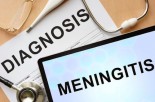Thanks to vaccines that protect against serious forms of bacterial meningitis, a virus causes most of today’s meningitis cases. Linda Reid, MD, believes that we are on the “cutting edge” of vaccinations right now.
How effective are these bacterial meningitis vaccines, and at what age should they be administered?
What is Meningitis?
Meningitis is an inflammation of the areas surrounding your brain and spinal cord. Due to swelling, trademark symptoms include a stiff neck, high fever, and headaches. Treatment and outcome vary depending on the type of meningitis, as well as the severity. The most common type of meningitis, viral meningitis, is usually mild and can clear on its own.
The second, less-common type is bacterial meningitis. Because of its unyielding nature, bacterial meningitis is much more dangerous and can even be life-threatening. However, with early detection, diagnosis, and proper treatment, an estimated seven out of 10 children will be able to recover without any complications.
The Proper Vaccinations
The last several years have seen a few outbreaks of meningitis at universities, with some causing student deaths. The American Academy of Pediatrics recommends children between the ages of seven and 10 receive vaccinations for meningitis strains A, C, W, and Y. A second vaccination is recommended as kids are entering college.
A fifth strain of meningitis, type B, has not been covered by previous vaccinations. Just recently, an experimental vaccine made specifically for type B was approved for use. There are two forms of the new vaccine; one is given in three doses, while the other is given in only two. Both have shown to be effective vaccines and have been approved by the FDA.
If your child is attending college this fall, “keep a close eye on the news and stay in touch with your doctor,” says Dr. Reid. Watch for any signs of bacterial meningitis outbreaks happening at schools. Meningitis can evolve very quickly, but paying attention to potential symptoms, like a stiff neck paired with headaches, rashes, nausea or vomiting, will help identify a problem. If you have any doubt about your child’s condition, speak to your physician immediately.
In the accompanying audio segment, Linda Reid, MD, discusses meningitis (and HPV) vaccines, when your child should get these vaccines, and other things you and your physician should consider.
How effective are these bacterial meningitis vaccines, and at what age should they be administered?
What is Meningitis?
Meningitis is an inflammation of the areas surrounding your brain and spinal cord. Due to swelling, trademark symptoms include a stiff neck, high fever, and headaches. Treatment and outcome vary depending on the type of meningitis, as well as the severity. The most common type of meningitis, viral meningitis, is usually mild and can clear on its own.
The second, less-common type is bacterial meningitis. Because of its unyielding nature, bacterial meningitis is much more dangerous and can even be life-threatening. However, with early detection, diagnosis, and proper treatment, an estimated seven out of 10 children will be able to recover without any complications.
The Proper Vaccinations
The last several years have seen a few outbreaks of meningitis at universities, with some causing student deaths. The American Academy of Pediatrics recommends children between the ages of seven and 10 receive vaccinations for meningitis strains A, C, W, and Y. A second vaccination is recommended as kids are entering college.
A fifth strain of meningitis, type B, has not been covered by previous vaccinations. Just recently, an experimental vaccine made specifically for type B was approved for use. There are two forms of the new vaccine; one is given in three doses, while the other is given in only two. Both have shown to be effective vaccines and have been approved by the FDA.
If your child is attending college this fall, “keep a close eye on the news and stay in touch with your doctor,” says Dr. Reid. Watch for any signs of bacterial meningitis outbreaks happening at schools. Meningitis can evolve very quickly, but paying attention to potential symptoms, like a stiff neck paired with headaches, rashes, nausea or vomiting, will help identify a problem. If you have any doubt about your child’s condition, speak to your physician immediately.
In the accompanying audio segment, Linda Reid, MD, discusses meningitis (and HPV) vaccines, when your child should get these vaccines, and other things you and your physician should consider.

 Yolanda (Linda) Reid Chassiakos is a Fellow of the American Academy of Pediatrics and a Clinical Assistant Professor of Pediatrics at the David Geffen School of Medicine, UCLA. A graduate of the Georgetown University School of Medicine, she is the Director of the Klotz Student Health Center at California State University Northridge, and a founding member of the American Academy of Pediatrics Media Resource Team.
Yolanda (Linda) Reid Chassiakos is a Fellow of the American Academy of Pediatrics and a Clinical Assistant Professor of Pediatrics at the David Geffen School of Medicine, UCLA. A graduate of the Georgetown University School of Medicine, she is the Director of the Klotz Student Health Center at California State University Northridge, and a founding member of the American Academy of Pediatrics Media Resource Team.